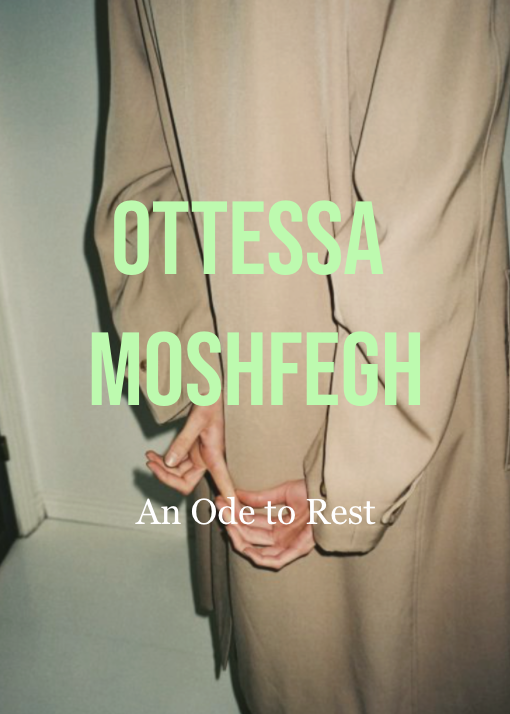LAPVONA
OTTESSA MOSHFEGH
Publisher: Penguin Press
Genre: Literary, Historical, Psychological Fiction
Moshfegh is singular, polarising. Ottessa the risk taker.
It’s clear from her body of work and her latest release Lapvona that Moshfegh does not give one f*ck about what her peers are writing or the overall zeitgeist of publishing at present.
In Lapvona, Moshfegh is writing about the depraved and inhumane. She is creating a commentary on humanity and it is tragic.
Firstly, pen my obituary in the blue cover font. Incredible, amazing, the colour, the design, what a cover. Now, to attempt to silo my thoughts on Lapvona, let’s begin with the plot, with as little spoilers as humanly possible.
Lapvona is a historical fiction novel, very similar to Moshfegh’s earlier work McGlue which was set in the 1800s and follows a drunken sailor who becomes embroiled in a potential murder. Immediately we see Moshfegh moving away from her clinically depressed, interior female prose (in the shape of Death in her Hands and My Year of Rest and Relaxation) which was adored by many. In Lapvona we also see a departure from a singular character focus, with the writing focusing on a town of people. Lapvona is a fictitious Eastern European country, set in the mediaeval period. A fiefdom controlled by Lord Villiam, who easily claims the crown of most depraved character Moshfegh has ever written. Which is quite the accolade. The novel opens with characters Marek and Jude. Marek is disabled and lives with his abusive father Jude. Marek often looks to God, imagining he is enduring certain atrocities in His name. Seeking solace in an omnipresent being. Marek’s character arc is one of the most salient in the novel, but in the interest of mystery we will leave that conversation in the air.
Magical realism touches the plot through the character of Ina, a wet nurse who can hear and interpret the natural world. A witchy archetype, Ina seems to provide a sense of sustenance during a plague that strikes the town. Ina feels like an adoptive mother character, still very flawed under the Moshfegh pen.
Lapvona is macabre, violent and unrelenting. The depravity Moshfegh writes into humanity really smacks you in the face with its relevance to modern day. Corrupt and evil behaviour is always underpinned with her signature dark, inviting humour. Written during the pandemic under a tyrannical American president, it isn’t hard to pluck analogies out of Lapvona. There is commentary on capitalism, on power and corruption. Moshfegh also injects misplaced guidance, misinformation and dramatic irony into the plot. The framework of the novel is fragmented in description, allowing the reader an understanding not bestowed to the characters. There is a sense of knowing better as the reader, but having to watch characters act in certain ways, through a lack of information. Again, Moshfegh is pulling in themes of misinformation, a prevalent topic in modern society. Towards the end of the novel Moshfegh introduces an omnipresent narrator, which feels very much like a cheeky nod to us, the reader. Acknowledging a writer's presence and the confirmation of certain themes and interpretations.
This book is audacious. Its characters are disgusting. These stand alone facts shouldn’t be embraced or applauded. Moshfegh uses her writing so effectively, we will be pondering Lapvona’s themes for months. Every single one of her books feels like a public flex, a literary explosion. Lapvona is quintessential Moshfegh and will be released June 21, 2022. Find it here.











